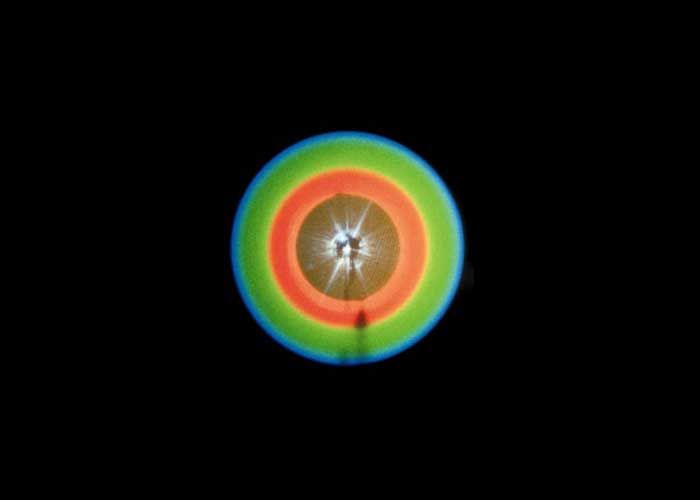In the realm of quantum mechanics, the phenomenon of quantum entanglement has emerged as one of the most captivating subjects of study. This phenomenon exhibits a range of perplexing characteristics that challenge classical intuitions and invite deeper contemplation. Recent advancements in the field have reported a remarkable new record in quantum entanglement, prompting both academic inquiry and public fascination. The interests surrounding this topic can be attributed not only to its scientific implications but also to the philosophical quandaries it raises regarding the nature of reality and interconnectedness.
Quantum entanglement, a term first introduced by Albert Einstein, Boris Podolsky, and Nathan Rosen in their 1935 paper critiquing quantum mechanics, describes a peculiar correlation between particles that have interacted in the past. When two quantum entities become entangled, the state of one particle is instantaneously linked to the state of the other, regardless of the spatial distance separating them. This implies that a measurement performed on one particle will yield an immediate response in its entangled partner. Such non-local behavior defies classical explanations and evokes a sense of wonder, as it seems to suggest that information can transcend the limitations imposed by the speed of light.
The recent record-breaking achievements in quantum entanglement involve enhancing the number of entangled particles in a single system, which poses immense technical challenges due to decoherence—the process through which quantum systems lose their information to the surrounding environment. This latest milestone has seen the successful entanglement of a significantly larger number of particles than previously achieved. Researchers utilized sophisticated techniques, including advanced photonic systems and state-of-the-art quantum algorithms, to maintain coherence over extended periods, pushing the boundaries of prior accomplishments.
This new height in entanglement invites further exploration into its implications for quantum computing and quantum communication. Quantum computers, leveraging the principles of entanglement, promise to revolutionize computations by performing tasks at exponentially faster rates than classical computers. In tandem, quantum communication systems, particularly quantum key distribution, could yield unbreakable encryption via the principles of entanglement, potentially safeguarding information in an increasingly digital world. Thus, the ramifications of this record extend beyond mere academic curiosity into the practical realms of technology and security.
Moreover, the fascination with quantum entanglement rests heavily on its philosophical implications. The idea that particles can be intrinsically linked across vast distances challenges our conventional understanding of separateness and locality. Such phenomena raise critical inquiries: What does it mean for two entities to exist as parts of a singular whole? How do traditional notions of communication and causality shift in this context? These questions resonate with a broader human curiosity about the foundational nature of the universe and our place within it.
Through this lens, entanglement has become more than a scientific inquiry; it parallels philosophical debates about holism versus reductionism. Entanglement suggests a universe that might be fundamentally interconnected, countering the reductionist view that reality can be understood solely through independent components. As researchers delve deeper into these relationships, they confront the limitations of our classical perceptions and the need for an updated paradigm of understanding.
In addition to philosophical considerations, the recent advancements in quantum entanglement provide profound insights into the quantum many-body problem—a significant challenge in theoretical physics that seeks to describe the behavior of large numbers of quantum particles. The record-breaking entanglement paves the way for exploring many-body states and their unique properties, potentially unlocking new phases of matter that remain theoretical. Investigating these emergent phenomena can reveal richer narratives about the qualitative behaviors of physical systems and enhance our comprehension of complex interactions.
Furthermore, as experimental methodologies advance, researchers are continually refining their techniques, leading to the development of novel materials and systems that exhibit entanglement. The synergy between experimental and theoretical physics fosters a vibrant dialogue that propels the field forward. Scientists are not merely passive observers but active participants in shaping our understanding of nature through entanglement studies. Consequently, the excitement surrounding this phenomenon stems from its potential to sculpt a new landscape for physics, technology, and philosophical inquiry alike.
The emotional allure of quantum entanglement, however, transcends its scientific merits, appealing to a fundamental human desire to grasp the cosmos’ intricacies. It denotes a quest for unity in a seemingly fragmented reality. This intrinsic connection has implications that reach far beyond particles themselves, touching on themes of collaboration, interdependence, and complexity across all scales of existence. As more records are established in the pursuit of knowledge, the resulting discourse will likely continue to shape our comprehension of physical laws and human experience.
In summary, the recent strides made in quantum entanglement, achieving new heights, reflect an extraordinary confluence of science, technology, and philosophy. This phenomenon compels both rigorous investigation and deep contemplation, urging humanity to reconsider its understanding of reality and interconnectedness. The intrigue woven around quantum entanglement invites an ongoing dialogue that not only advances practical applications in quantum computing and communication but also stirs a profound curiosity about our universe’s fundamental nature. As research progresses, it beckons a future where the boundaries of knowledge and existence may be further transcended, unraveling the intricate tapestry that connects us all.












